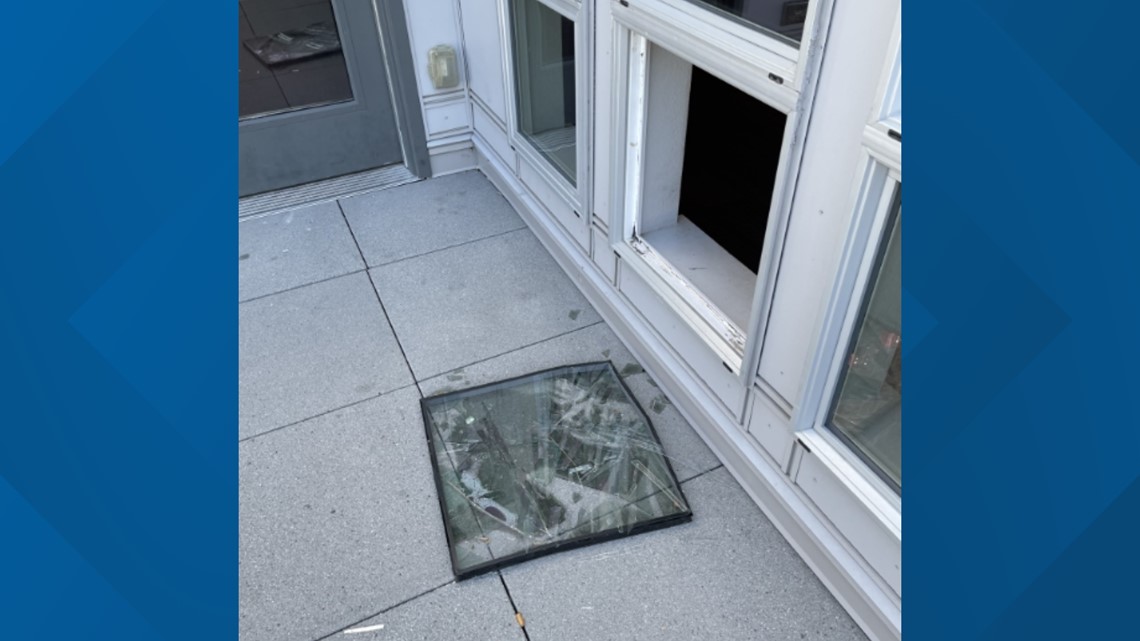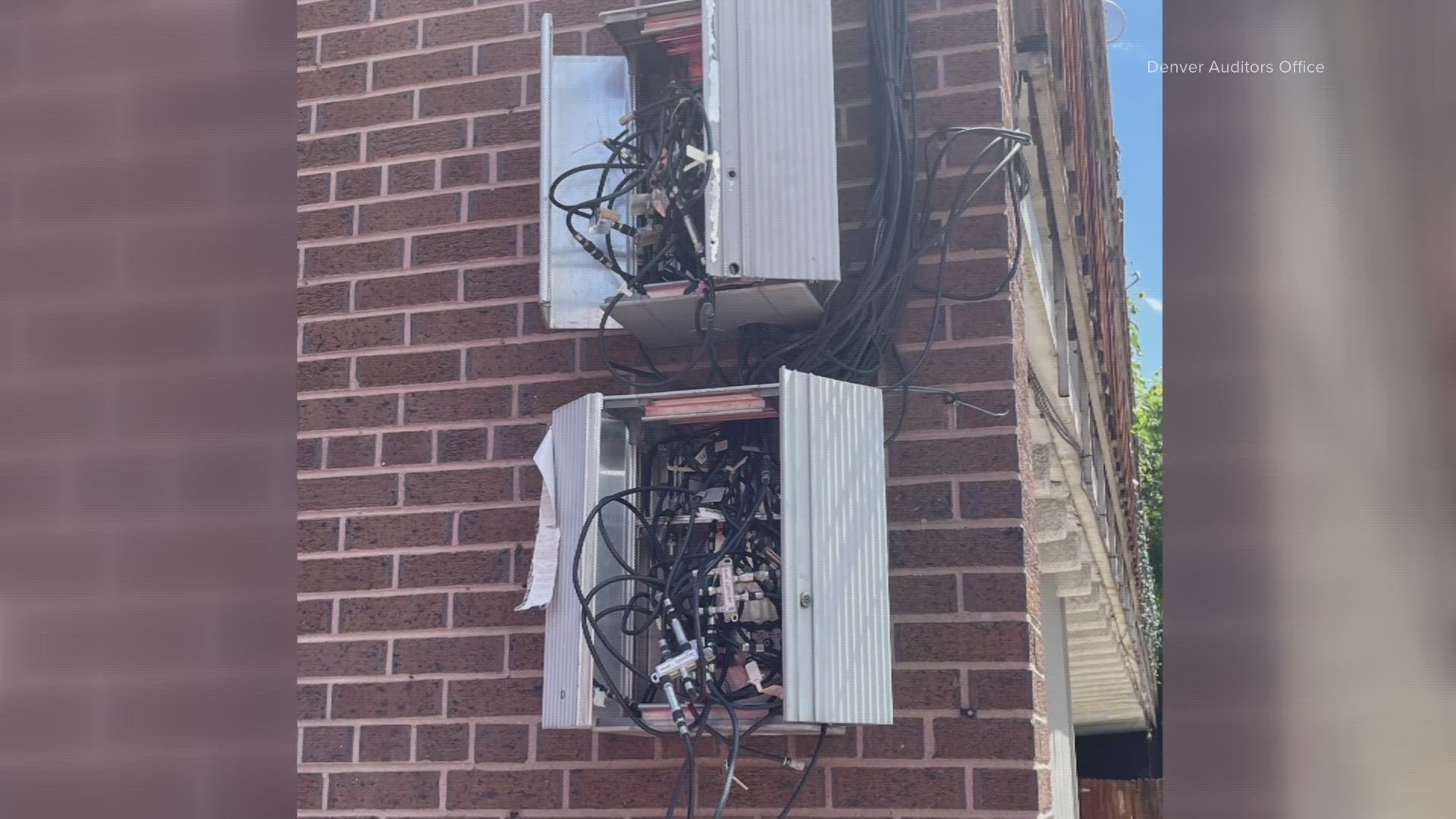DENVER — Denver is falling behind on affordable housing standards, according to an audit document released by the Auditor's Office on Thursday.
Auditor Timothy M. O'Brien analyzed how Denver's Department of Housing Stability manages its agreement with the Denver Housing Authority, as well as how it maintains affordable housing units. This is the third affordable housing audit done since 2018, according to the document.
The audit found that, in general, the department's policies "align with leading practices." However, the document says that taxpayer-funded projects aren't developing the required number of affordable housing units, and the city isn't doing enough to ensure that existing units are safe and habitable due to a lack of oversight from the department.
“If affordable housing is a priority in the city, leaders need to show a matching responsibility to effective use of resources, accountability to housing goals, and commitment to helping those in Denver who need it most,” O'Brien said.
He said people living in some of the properties are forming unions because they don't feel their voices are being heard. "That is more than enough evidence that the city needs to take this more seriously."
Denver isn't developing the required number of affordable housing units
According to the audit, the city isn't meeting the requirements in its taxpayer-funded agreement with the housing authority.
The "DHA Delivers for Denver Program," or "D3," focuses on building more affordable housing; however, the program hasn't followed through with its promises when it comes to developing new units.
"Under the direction of the city, Denver Housing Authority has developed 32 fewer units for very low-income households and 301 fewer units for moderate-income households than required by the agreement," the audit document reads.
Accessibility isn't guaranteed
In the United States, housing is considered affordable when costs, including rent/ mortgage or utilities, amount to no more than 30% of residents' incomes, according to the audit.
For a household to pay less than 30% of income, a household would need to make a yearly average of $84,000— more than twice the amount of someone making Denver's minimum wage, the document says.
Per the audit, DHA reported 203 market-rate units being rented for between 60% and 90% of the median income, claiming this fulfills the agreement's requirements simply because the rental prices are lower than Denver's average: 120% of the area median income.
Although half of the said units accommodate prices fit for the "target income," the audit says such reduced costs "are not guaranteed if market conditions change"— additionally, the other half of the units "already exceed the rents allowed by the agreement."
Housing inspections fall short
The audit says the city's housing inspections are "inadequate," allowing people to live in situations that could expose them to "possible increased health and safety risks."
According to the document, the Auditor's Office "conducted unannounced on-site observations" at 21 affordable housing projects selected at random: 20 of these projects were funded by the Department of Housing Stability, and one was a permanent housing project financed through program funds.
These observations, which accounted for both outdoor and indoor spaces, found the following, per the audit:
- Building doors being unlocked or propped open.
- Doors missing handles.
- Missing ceiling tiles and water damage.
- Pet or human waste in public areas.
- Trash and debris in public areas.
- Broken windows.
- Dirty or damaged carpets.
- Potential fire code violations, which we reported to the fire department.
- Large cracks and other damage to exterior brick or foundations.
- Evidence of pest infestations.
- Exposed electrical wires or damaged electrical features.
- Window screens missing or damaged.
- Inoperable or malfunctioning elevators.
- Standing water in public areas.
- Damaged interior and exterior lighting.


“The city’s approach to health and safety in affordable housing buildings is not good enough,” O’Brien said.
According to the document, the department did not agree with recommendations made by the auditor in regard to maintaining affordable buildings and their units, as well as recognizing and fixing potential hazards.
Other concerns
The document lists the following as additional concerns found following O'Brien's audit:
- The city is not ensuring contractors comply with wage laws on affordable housing projects.
- The Department of Housing Stability is not verifying residents' annual income.
- The department lacks "adequate controls" when it comes to data and might be too understaffed to meet its goals.
- The department agreed to implement 17 of the office's 19 recommendations, disagreeing with two that "would help ensure affordable housing is effectively inspected and that units and buildings are maintained, safe, and sanitary for the residents they benefit."
However, the office said it reviewed "thoughtfully designed" parts of a policy that will help people who are at risk of being displaced, which will be applied throughout the city and prioritize those who have lived in Denver for a long time.
Find the full audit here.
SUGGESTED VIDEOS: Latest from 9NEWS

